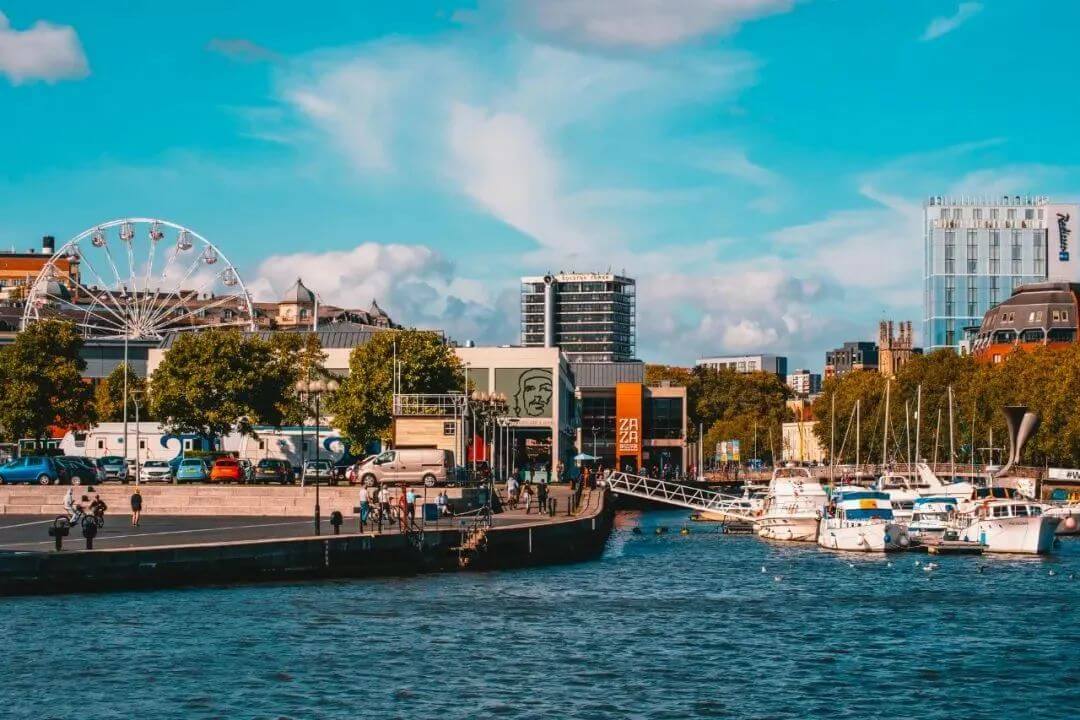Cost of Living in Bristol: What You Need to Know
Bristol is one of the most popular places for students and young people in the UK and is the largest city in the South West of England. Bristol is known for its independent spirit and is full of individual cafes, pubs, music and cultural venues. Surrounded by coastal and rural picturesque scenery and 90 minutes from London, Bristol is cheaper than London in most ways. Still, Bristol’s spending levels are high compared to other cities in the UK. This blog will provide a comprehensive overview of the cost of living in Bristol, including food, education, and accommodation expenses, providing a clear understanding of this vibrant city!

Cost of Living in Bristol: Education
Located in the south-west of England, close to the Irish Sea, Bristol has a history of almost 500 years. Since the Middle Ages, Bristol has been a hugely important commercial port in the UK. It is now one of the eight core cities of England, with a population of over 400,000, and is the region’s leading commercial, cultural and educational centre. Bristol is home to two universities: the University of Bristol, ranked 55th in the QS World Rankings 2024, and the University of the West of England. The University of Bristol has long been one of the most favoured universities for middle-class families in the UK and has long served as a first choice in addition to Oxford and Cambridge Universities.
For students who want to study at the University of Bristol, Undergraduate tuition fees for overseas students entering in autumn 2023/24 will average £23,700 to £45,700. 2023/24 overseas postgraduate taught tuition fees will average £31,100.
For students who want to study at the University of the West of England, Undergraduate tuition fees for overseas students are between £15,250 and £15,750, depending on your course. 2023/24 overseas postgraduate taught tuition fees average £21,100.
In addition to tuition and application costs, there are other expenses to consider when studying in Bristol. Books and miscellaneous expenses typically range from £30 to £70 per month, covering the costs of books, printing, stationery, and other program-related materials or equipment. Specific programs, such as Engineering or Medical fields, may require additional expenses for specialized equipment or field trips.
Cost of living in Bristol: Accommodation
In Bristol, students have a wealth of housing options. Most will choose university residence or off-campus student accommodation. Each option has different advantages and disadvantages, and as a result, the costs vary greatly.
The University of Bristol provides on-campus student accommodation for all undergraduate students during their first year of study and for at least one year of their programme. Accommodation costs vary depending on the type of room and area chosen and range from £105 to £245 per week.
Most University of the West of England halls of residence offer students 42 weeks of accommodation, with individual halls of residence being able to extend their stay by agreement. Accommodation costs vary depending on the type of room and area chosen and range from £129 – £311 per week.
With a wide range of off-campus student accommodation in Bristol, students need to find a suitable rental platform. uhomes is a specialised rental platform offering quality accommodation for students. According to this website platform, the average rent for off-campus student accommodation in Bristol is £290 per week. uhomes also provides student flats for less than £200 per week for more affordable accommodation options.
Cost of living in Bristol: Daily Life
- Here are some approximate prices for common food items in Bristol:
- A Loaf of Fresh White Bread (500g) costs around £1.14.
- A large carton of milk (1 litre) is usually priced at about £1.1.
- Eggs are available for approximately £2.54 per dozen.
- Apples (1kg) can be found for about £2.17.
- Beef Round (1kg)for approximately £10.03.
For those who prefer to cook for themselves, this will cost around £80-£100 per week. But eating out is also an essential part of maintaining relationships. There are a variety of restaurants in the city, with meals ranging from £15 to £60.
Bristol is a city with a robust humanistic flavour and a unique cultural element. The annual St Paul’s Carnival and International Balloon and Kite Festival attract visitors from all over the world. Bristol has a wide range of museums, arts centres and theatres offering diverse artistic pursuits, and movie enthusiasts can expect to pay approximately £9 for a cinema ticket. A gym membership in Bristol can cost anywhere from £30 to £50 per month. On average, you should budget approximately £150-£300 per month for entertainment in Bristol, depending on your lifestyle.
The cost of transport is a topic that often comes up when studying in Bristol, which has a well-developed transport system, including buses, trains and ferries. One of the most popular ways to visit Bristol is its extensive public transport system. The leading operator is First Group, which runs bus and train services in the city. A single ticket for Bristol city centre costs £2.50, while a day ticket costs £4.70. If you plan to travel by bus regularly, buying a weekly ticket for £17 or a monthly ticket for £60 may be worthwhile. Bristol train tickets are slightly more expensive, costing around £3- £4 each way in the city centre. If you plan to drive in Bristol, parking in the city centre is quite expensive at an average of £2 per hour.